Alumni Spotlight
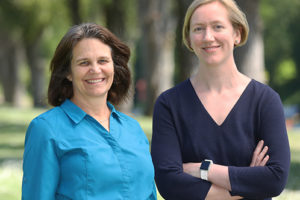
The Triple Crown
Generations of mentoring for women of science.
When you do research, a lot can go wrong: Your experiment fails. Your funding is denied. Your experiment fails, again.
“In research, you need a lot of perseverance. You need to be smart and organized, but you also need to have passion — and grit above all else — to get past the setbacks,” says Liz Swisher, M.D., Res. ’93, a UW professor in obstetrics and gynecology.
When Swisher finds someone who has that grit — she helps them. After all, that is what her mentors did for her.
Read More >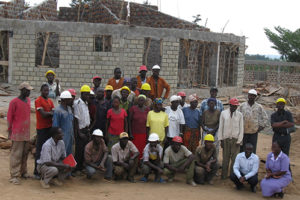
From the Ground Up
An alumnus reflects on his volunteer work in helping build a Kenyan hospital.
Fourteen years ago, Ukwala was a small, dusty town in western Kenya. Today, it has been transformed by the Matibabu Foundation Hospital, located at its center. Businesses have sprung up nearby to serve the people who visit, providing food, lodging and other services to families and volunteers.
Read More >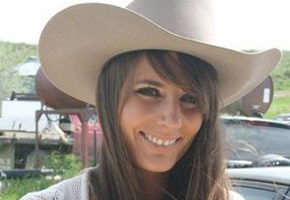
Going Back to Montana
KayCee Gardner, M.D., fulfills her dream of taking care of people (and cattle) in her home state.
For some, the dream of becoming a doctor begins in childhood. But not for alumna KayCee Gardner, M.D. ’12 — although she had role models, none of them happened to be doctors. At the time, there were absolutely no doctors in Hammond, the town closest to her family’s 20,000-acre sheep and cattle ranch in southeastern Montana.
Read More >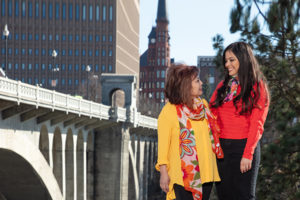
Homegrown
A family of medical professionals puts down roots in Spokane.
“My mother is a spitfire,” says Mara Hazeltine, a fourth-year medical student at the UW School of Medicine. “She was one of the first from her family to emigrate from the Philippines. For her, it was about creating the best life for me.”
Read More >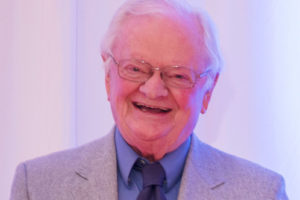
The Pivotal Moment
A faculty member’s long-ago kindness inspires an alum to give.
It was the first day of classes at the UW School of Medicine, but instead of attending anatomy class, one first-year medical student was hiding in the student union. Anxious and overwhelmed, he flipped through a newspaper, drinking cup after cup of coffee and wondering what on earth he’d gotten himself into. For Gilbert Smith, M.D. ’64, it was almost the end of his medical career — before it even began.
Read More >
Ready for Mindfulness?
Being “in the present” helps reduce student stress.
How long does it take to eat a raisin? If you eat it mindfully, it could take several minutes, according to Craig Scott, Ph.D., UW professor emeritus in the Department of Biomedical Informatics and Medical Education.
“You think about what the raisin is and all the people involved in getting it into your hand,” says Scott. “That slowing down is so important.”
Read More >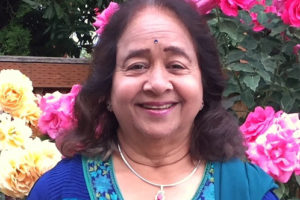
Colonel Shashi
Committing to a new country and a life of service.
When Shashi Kumar, M.D., Res. ’77, accepted her first job, she was quick to relate the good news to Walter C. Stolov, M.D., then the chair of rehabilitation medicine. And he told her (in so many words) that she’d taken a job with a khaki dress code.
“I joined Madigan not realizing that I was actually joining the U.S. Army!” says Colonel Kumar, UW clinical associate professor in the Department of Rehabilitation Medicine. “It was the best professional decision of my life.”
Read More >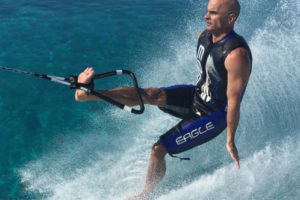
Portrait of a Radiologist
An alumnus redefines the field’s traditional image.
When you imagine a radiologist, you might think of someone in a white lab coat interpreting images of CAT scans and MRIs — someone a little distant and reserved. But that couldn’t be further from the truth, says alumnus and radiologist Jim Murakami, M.S. ’95, M.D., Res ’96, Fel. ’97.
Read More >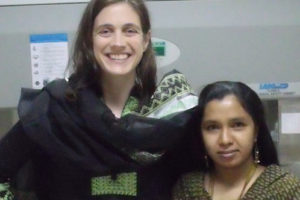
The Human Connection
A UW Medicine alumna connects studying health with delivering care.
What do a family medicine practitioner and a global health researcher have in common? Just ask Maegan Ashworth Dirac, M.D. ’14, Ph.D. ’12 — she’s both. For Dirac, a typical week’s work will involve writing computer code, analyzing public health data and maybe even delivering a baby.
Read More >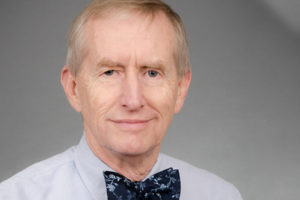
Who Inspires You?
Turning admiration into action.
Back in 1978, John Hess, M.D. ’72, and Lee Jong-wook were just two young doctors dispensing care in South Korea — Hess was working for the U.S. Army, and Lee was running an emergency room in a small provincial hospital.
“Once in a while you meet someone and you say, ‘hold it’, this is an amazing person,” says Hess.
Read More >
